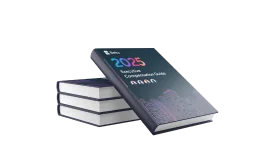Interviewing can be overwhelming. Closing an interview can he even harder. If you’ve just interviewed at a job here are the top 3 important interview follow-up questions you should ask.
Speed?
After an interview, you should ask a hiring manager how quickly they need the position filled. Is this position something that needed to be filled yesterday? Are they holding out for the right fit? Will they be hiring more than one person to fill the role? Understanding a hiring manager’s urgency can help a job seeker set realistic expectations when it comes to feedback, interviews, and offer timelines. Asking follow-up questions about the speed and urgency of the search can indicate when a hard sale during an interview is appropriate.
Knowing how quickly a position needs to be filled can also give a job seeker more insight on the company. Are they building a team from scratch? Is this position being back-filled due to a promotion? Looking at how the hiring manager goes about hiring for a position can help a job seeker prepare for interviews. Speed can be indicative of a position that is a good stepping-stone for promotions or conversely, can indicate high turnover. Learn a hiring manager’s timing and do the research required to understand why.
Hesitations?
Understanding hesitations in an interview is the best way for a job seeker to overcome them. Asking point blank for hesitations is one of the best ways to get to the core traits and duties a position requires. Where does a hiring manager think the job seeker is lacking? What kind of hesitations are the main drivers? Knowing whether it is culture, experience, or skill-based hesitations can help a job seeker bolster their story and better represent themselves in the follow-up email and next interviews.
Asking in an interview for hesitations also causes a hiring manager to think about a job seeker’s background specifically. Do they have an immediate answer because they already had something on their mind? Are they drawing a blank because the professional experience matches up perfectly? Forcing a hiring manager to look at a candidate as a potential fit can help prove a job seeker’s ability to excel at the position.
Next Steps?
Before ending an interview, always set concrete next steps. Even if a hiring manager won’t commit to setting up the next interview, a job seeker can still confirm other interactions. When will I receive feedback? When will you reach a decision? Should I follow up with you on this Friday? Using specific dates and times can help hold both an interviewer and hiring manager accountable to make quick decisions.
Setting up next steps can also indicate to a hiring manager how eager a job seeker is for the opportunity. Demonstrating that a candidate wants to move forward can encourage a hiring manager to move them along in the process. Don’t be afraid to ask for different next steps if your first suggestion is turned down. A potential employee should be driven enough to make sure they get through to the next round.
